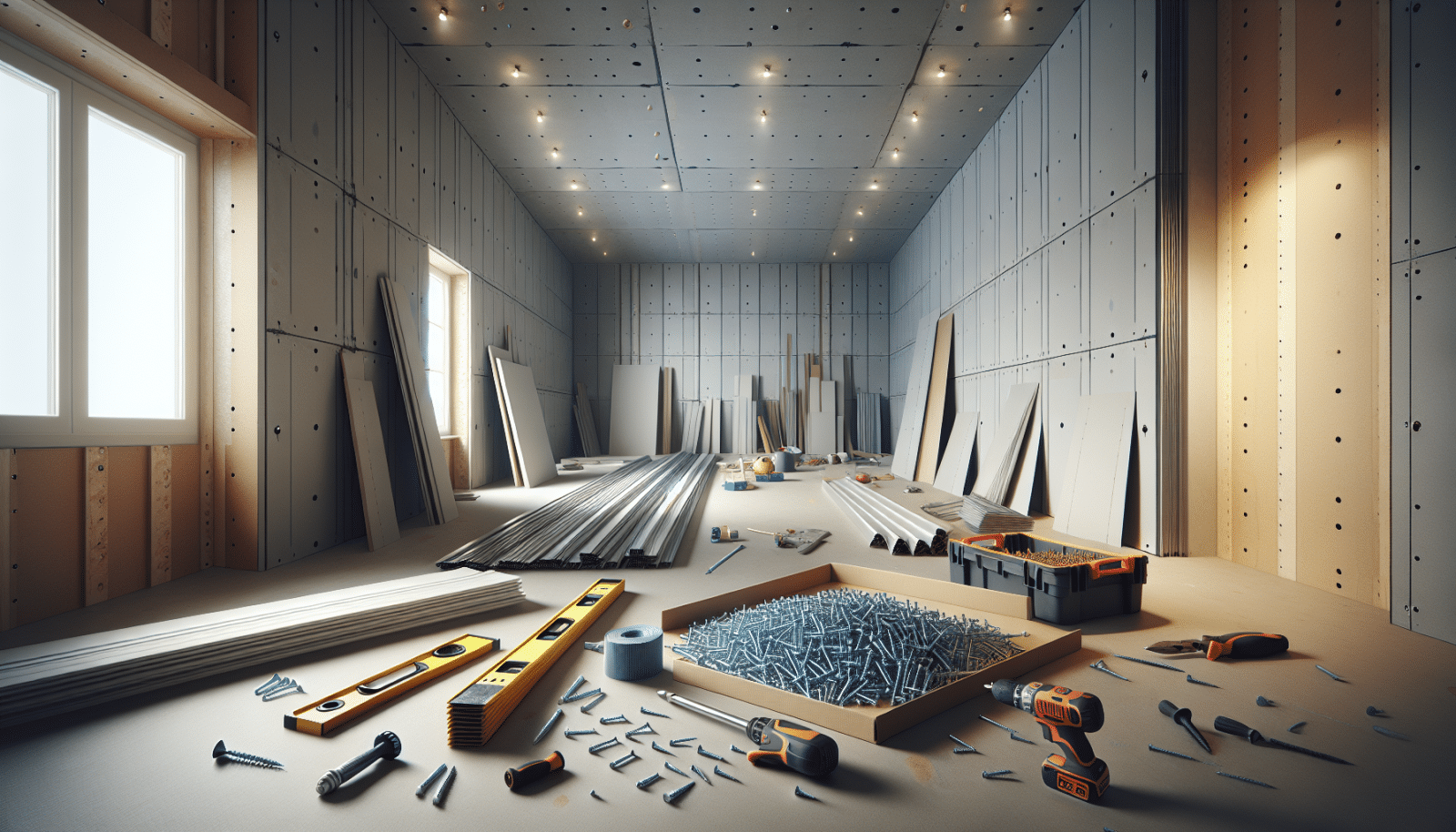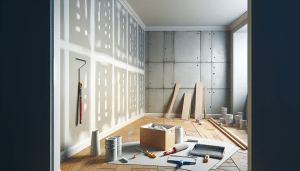Drywall Screws and fasteners are often overlooked yet essential components in every construction and renovation project. As a homeowner, understanding these small but mighty tools can save you a world of trouble and enhance the durability and aesthetic of your spaces. At Utah Drywall & Repair, we’ve seen it all. That’s why we’ve compiled this comprehensive guide to walk you through everything you need to know about drywall screws and fasteners. Whether you’re tackling a DIY project or just want to be informed, you’re in the right place!
Contents
What Are Drywall Screws and Fasteners?
Drywall screws are specialized screws designed explicitly for attaching drywall sheets to wood or metal studs. Their unique threads and sharp tips allow them to grip drywall without damaging it. Fasteners, on the other hand, are the unsung heroes that come in various forms beyond just screws. They include anchors, toggle bolts, and more, each serving its own purpose in drywall installation.
The main goal of these tools is not just to hold drywall in place. They also preserve the integrity of the material being affixed. This makes understanding their functionality all the more crucial. In the next few sections, we’ll delve deeper into the types and uses of these vital components.
Types of Drywall Screws
There are several types of drywall screws that cater to different needs. The type you choose can significantly impact the success of your project.
Coarse thread screws are ideal for attaching drywall to wood studs, while fine thread screws are better suited for metal stud applications. Self-drilling screws eliminate the need for a pilot hole and are perfect for dense materials. Lastly, trim head screws are used when a less noticeable screw head is desired.
It’s important to select the right type of screw to ensure a stable and long-lasting installation. Improper choice can lead to problems like cracking and loosening over time.
Understanding Screw Sizes
Drywall screws come in various sizes, each serving specific functions. The size of your screw depends largely on the thickness of the drywall and the material of the stud. Most commonly, screws range from 1 to 3 inches in length.
When you’re working with standard drywall sheets, one 1/4-inch screws are typically sufficient for wood studs. For metal, 1/2-inch screws work well. Should your drywall be extra thick or if you’re working with multiple layers, consider longer screws.
Picking the correct size is vital to prevent issues such as “popped” screws. Selecting the wrong size can also adversely affect the strength of your installation.
Choosing the Right Fasteners
Fasteners go hand in hand with screws and play a significant role in drywall projects. Depending on your specific tasks, you may encounter several types of fasteners.
Anchor bolts are used for heavy-duty applications, while toggle bolts offer extra support for lighter load-bearing drywall installations. Self-drilling anchors simplify the process by eliminating the need for a drill.
Understanding what each type of fastener is best suited for can enhance the efficiency and success of your drywall endeavors.
Why Quality Matters
It can be tempting to opt for the cheapest screws and fasteners available. However, quality plays a massive role in the longevity and integrity of your drywall installation.
High-quality screws have sharper points and better threading, making them easier to drive into drywall without damaging it. Similarly, high-grade fasteners offer more reliable hold and less chance of failure.
Investing in quality materials ensures that your drywall stands the test of time, potentially saving you money on future repairs or replacements.
Common Problems and Solutions
Like any part of construction, drywall screws and fasteners can come with their share of issues.
For instance, overdriving a screw can weaken the drywall, and poorly chosen fasteners may not support the intended load. Solutions include using a screw gun for consistent driving depth and selecting the correct fastener for the job.
- Overdriving Screws can cause drywall to crack or screws to pop out. To fix, use a clutch setting on your screw gun to achieve uniform depth.
- Underdriving leaves screws protruding from the drywall. Simply double-check your work and apply additional pressure to ensure the screw is flush with the wall surface.
- Wrong Fastener Type may not support drywall properly. Evaluate the load requirement and choose the fastener designed for it.
- Screw Rusting compromises strength. Choose galvanized screws to avoid corrosion.
- Screw Slippage can occur when threads don’t grip properly. Opt for screws with finer threading for metal studs or coarser threading for wood.
Installation Tips
Having the right tools makes the installation process of drywall screws and fasteners much easier.
First, always pre-drill holes when necessary; it makes driving screws more manageable and precise. Using a screw gun or drill with a special drywall bit can greatly increase your efficiency and the overall quality of your work.
Make sure you’re driving screws at a slight angle toward the stud to ensure better grip and stability. Finally, space screws evenly, typically every 12-16 inches, to distribute weight effectively.
Maintenance and Inspections
Once your drywall is installed, regular maintenance and inspections can prevent long-term problems.
Look for any signs of loose screws or fasteners by observing the wall for imperfections, such as visible heads or bulging. In some cases, adjustments can be as simple as driving the screw back into place or slightly replacing it.
Make periodic checks part of your home routine to catch minor issues before they morph into bigger headaches.
Recycling and Disposal
After finishing your project, it’s essential to manage leftover materials responsibly.
Old screws and fasteners can be recycled but be sure to clean them before recycling to avoid contamination in the recycling stream. Separate them from other construction waste for more efficient sorting.
Consider donating unused materials to local community projects. Giving materials a second life is a great way to help your community and the planet.
Conclusion
Understanding drywall screws and fasteners doesn’t have to be complicated. By phone # 801-406-6350 or Request a Free Quote for more detailed advice tailored to your specific needs.




